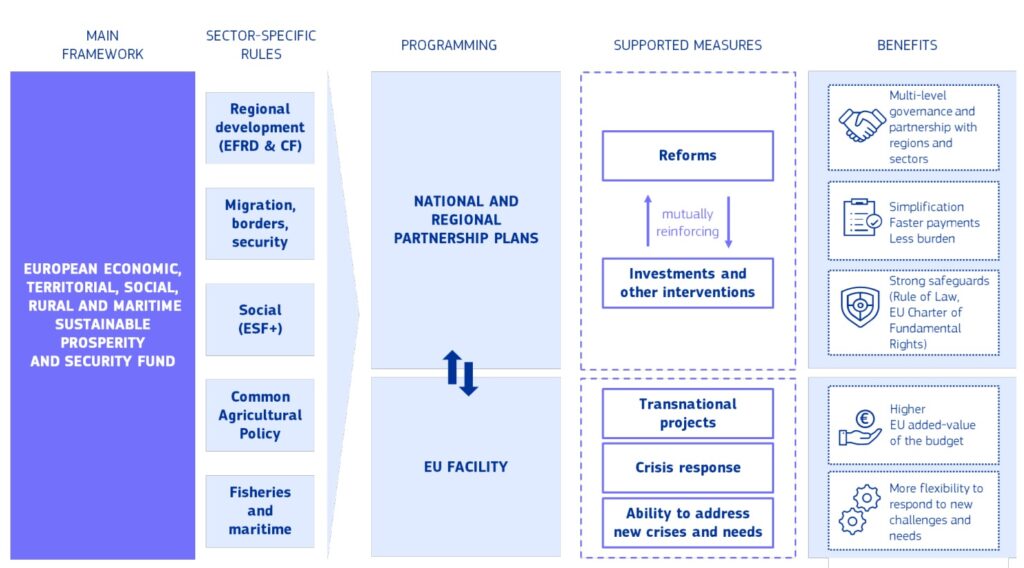The European Commission’s targeted consultation on a digital euro ended on the 16th of June and while the future of our common currency may seem far remote from the concerns of civil society, the stakes are much higher than one might suspect.
COFACE-Families Europe answered the consultation underlining the importance of treating money as a public good, and especially, as a vital instrument for citizens to be able to transact freely. The gradual move to digitalization has affected major parts of our economies and lives, including the way we send information or even the way we work. Nowadays, we only send letters for special occasions and use email or other forms of digital communication for the rest. The same trend can be observed in the world of finance. Transactions carried out in cash are declining, alongside the number of cash ATMs. Private banks argue that manipulating cash is a costly business. On top of that, blockchain technology enabled the emergence of so-called “stable coins” which aim at keeping their value pegged to one or another national currency. All of these developments have led the European Central Bank along with other public institutions, to reflect on the evolution of our common currency.
While publicly stating that the digital euro would by no means replace cash, the physical representation of the euro, in the form of physical bills and coins, might disappear for a variety of reasons (or excuses): if banks gradually make ATMs less and less available making it more difficult to access cash if merchants are disincentivised to accept cash, if cash is banned for hygienic reasons because it spreads diseases if inflation reaches a point where the existing cash in circulation is worthless…
Cash, however, has certain very interesting properties:
- It is fully private (a euro bill doesn’t track your purchases);
- It is fully anonymous (a euro bill doesn’t know your name as it sits in your wallet);
- It does not require any ID verification (anyone can accept a euro bill from someone else, as opposed to the requirements necessary to open a bank account in order to receive payments);
- It cannot be taken away from you or manipulated in any way (there isn’t a line of code that can be executed arbitrarily by some public authority to “freeze” the money in your wallet or confiscate it from you, or even apply negative interest rates to the money in your wallet).
While these features may appear as problems to some, pointing to money laundering, terrorist financing, and all kinds of other abuses; to many ordinary citizens, they represent a source of freedom, non-interference, and autonomy vis-à-vis centralized institutions be it private banks or governments. Time and time again, history reminds us of the importance of cash as an economic and financial balance of power mechanism between citizens and governments/private banks, for instance, in cases where governments decided to use “bail-in” measures to salvage certain financial institutions by dipping into the savings of ordinary citizens, or in cases where private banks start applying negative interest rates to people’s savings as a response to the experimental monetary policies put in place by various governments and central banks around the world since the 2008 great financial crisis.
But the digital euro, so far, is not going to become a digitalized version of cash, emulating all of its key features as underlined above:
- It will likely only be partially private, in order to allow for investigating money laundering and other financial crimes;
- It will not be fully anonymous;
- It will likely require some form of KYC (Know Your Customer) process to open a digital euro account.
- And it is still unclear what kind of powers public authorities would hold over your account. The European Central Bank has already suggested that it might apply negative interest rates above certain amounts to ensure that a digital euro account does not create unfair competition with regular bank accounts.
“What is the point of the digital euro, then?” One might ask. Because indeed, the digital euro just looks like a regular bank account, only with a better liability, since the ECB would be directly liable for the funds. The digital euro might simply be a knee-jerk response to the emergence of stable coins, mentioned above, many of which, as of now, require no KYC (Know Your Customer) procedure and are very close to ticking the anonymity box. However, they do present a number of problems including their stability, looking at the recent Terra USD collapse. But suppose these risks were to be addressed. In that case, stable coin accounts might present a certain appeal to citizens: with an easy process for opening an account, being able to send money across the world to anyone and receiving payments from anyone, using Decentralized Finance to generate some yield as opposed to the zero or even negative interest rates of regular bank accounts. Such a move would threaten not only the monopoly of private banks over money but also the control that public authorities have over money and monetary policy.
In its response to the public consultation, COFACE-Families Europe has thus defended the necessity of ensuring that the digital euro carries the same features as cash, to become a true “digital cash” as opposed to only carrying the name without any of the features. Also, access to cash should remain a right across Europe for the foreseeable future, as there are as of yet no digital equivalents affording people with similar features and protections.
For more information, you can read COFACE-Families Europe’s response to the consultation here or contact Martin Schmalzried: mschmalzried@coface-eu.org.
**DISCLAIMER: All opinions in this article reflect the views of the author, not of COFACE Families Europe**
About the author: Martin Schmalzried is the Senior Policy and Advocacy Manager Financial Inclusion and Services at COFACE Families Europe.
Photo: ©CiberDan via Canva.com





